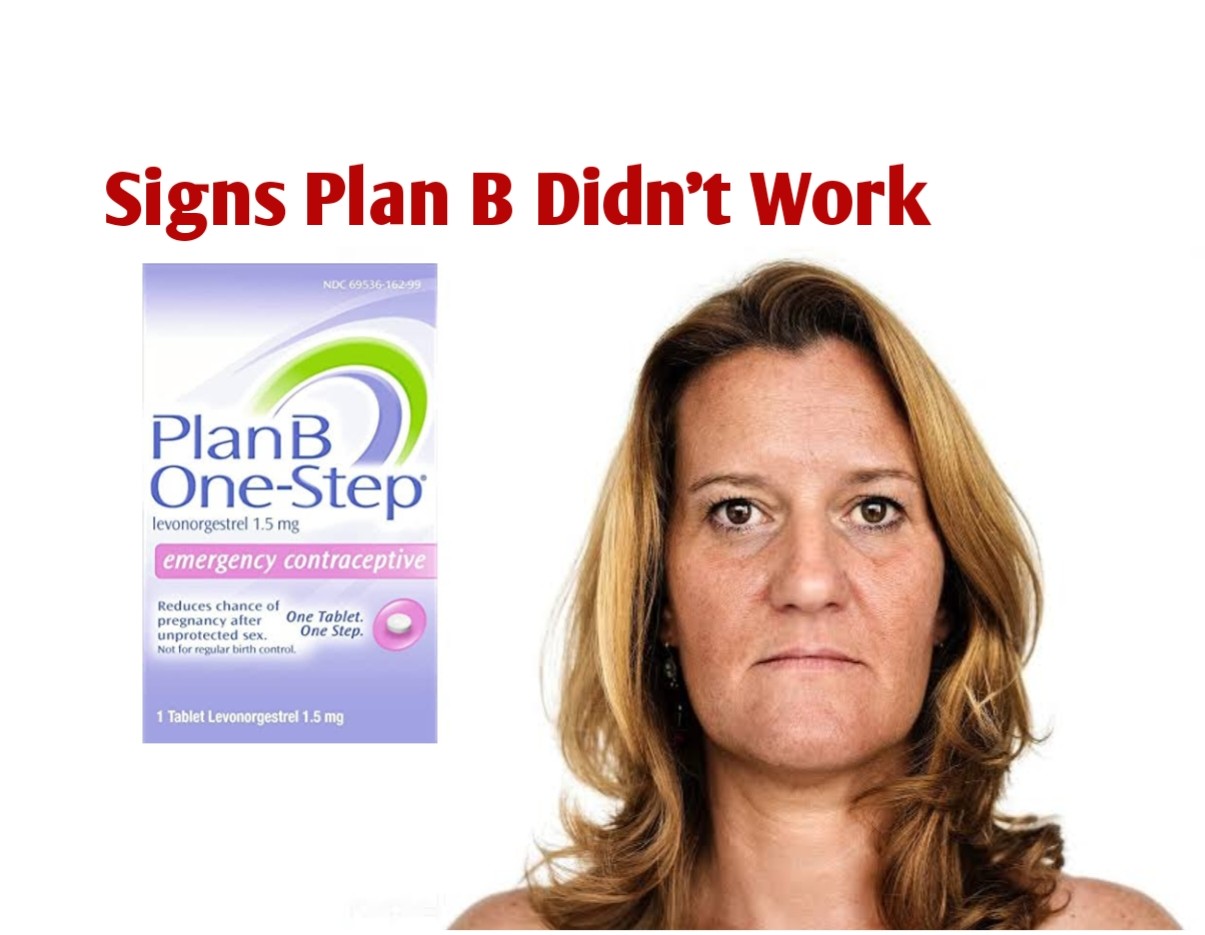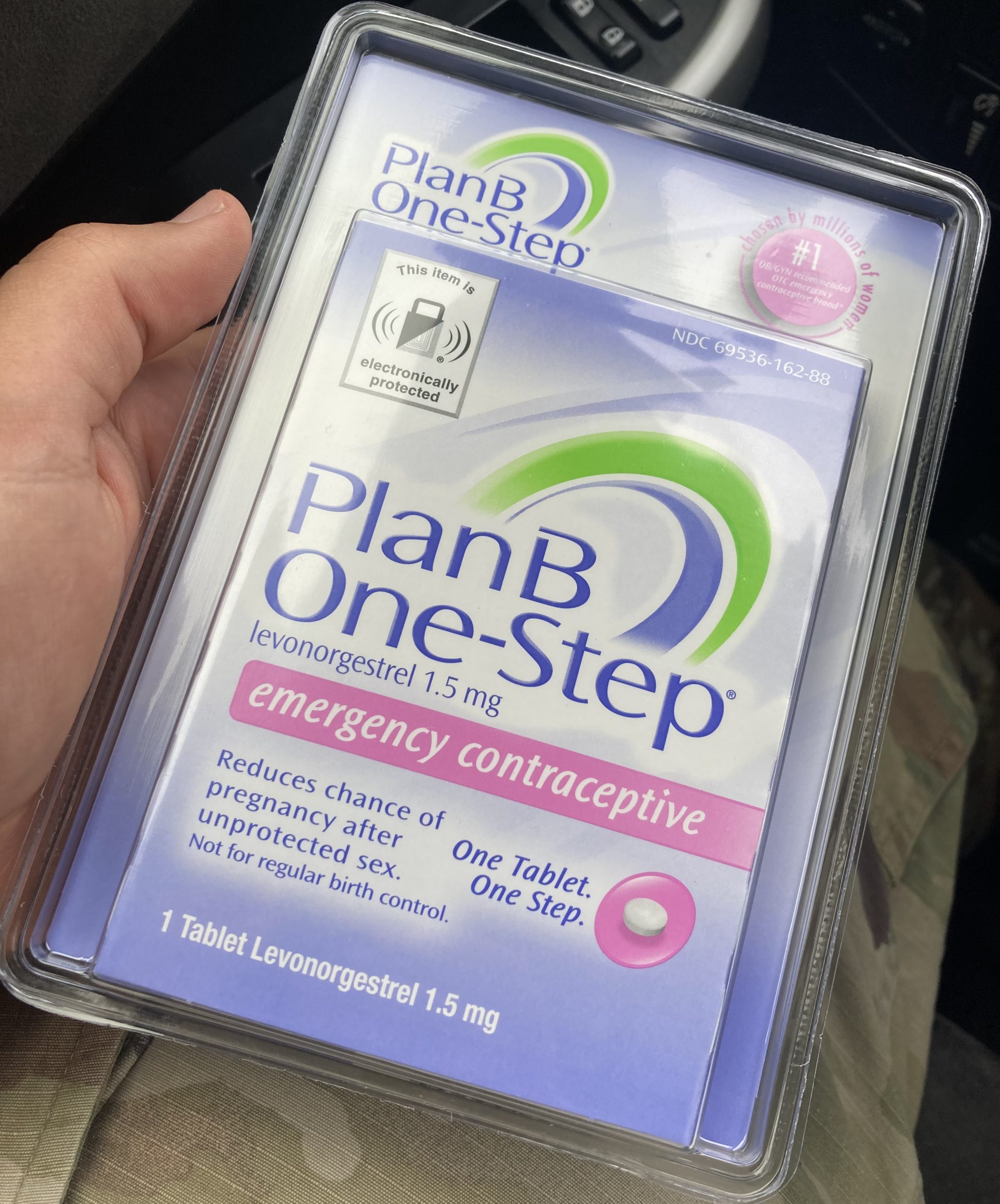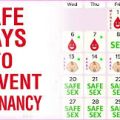In the strict sense, contraceptive failure refers to the occurrence of a pregnancy during sexual intercourse when contraception is used. Studies reveal That unintended pregnancies can result from contraceptive failure. With respect to contraceptive failure, it is important to note that no method of contraception is 100% effective. Some methods are referred to as 98% to 99% effective — meaning that for every 100 couples that use the method, only 1 or 2 will experience a pregnancy. But the method of contraception will only be this effective if used exactly according to the manufacturer’s — and possibly a doctor’s — instructions.
Some people call this ‘perfect use’ — where the rules of the method are followed rigorously, every time the couple has sex. But not every couple uses contraception perfectly. In that case, the method of contraception will be less effective (sometimes called ‘typical use’).
What is Plan B?
Plan B is an emergency contraceptive pill containing levonorgestrel, a hormone that can be used for emergency contraception. Levonorgestrel can prevent pregnancy after unprotected sex. People sometimes call it the “morning-after pill.” But you don’t have to wait until the morning after sex to take it. In fact, Plan B is more effective the sooner you take it. It is a one-dose regimen: you take one pill.
The FDA states that there are no safety concerns that preclude the use of Plan B in women generally, and continue to believe that all women, regardless of how much they weigh, can use these products to prevent unintended pregnancy following unprotected sex or contraceptive failure. The most important factor affecting how well emergency contraception works is how quickly it is taken.
In the United States, beyond Plan B, there is another approved pill for emergency contraception known as ella® (ulipristal acetate). Plan B One-Step® also has several generic versions. Some common generic versions include AfterPill™, My Way®, Next Choice One Dose™, and Take Action.
How should I take Plan B?
According to WebMD, 1 tablet of Plan B Should be taken by mouth with or without food as soon as possible after unprotected sex. This medication works best when it is taken within 72 hours (3 days) after unprotected sex. If you vomit within 2 hours of taking this medication, contact your doctor to ask if you need to repeat the dose.
When Plan B is taken as directed within 72 hours after unprotected sex or birth control failure, it can significantly decrease the chance that a woman will get pregnant. In fact, the earlier the product is taken after unprotected intercourse, the better it works.
10 Major Signs Plan B Didn’t Work
Plan B is not 100% effective, which is why it is critical that women have a “Plan A” (regular) birth control method or start one if they don’t have one. Here are the top 10 7 signs which indicate Plan B didn’t work:
- Increased Sensitivity To Smell: Sensitivity to smell is an early sign Plan B didn’t work because it is a pregnancy symptom that makes previously mild odors strong and unappealing. Since it’s one of the first symptoms of pregnancy many women report, babies might be in the air if your sniffer’s suddenly more sensitive and easily offended despite taking Plan B.
- Food cravings: Food cravings, constant hunger, and food aversions can also be another early sign Plan B didn’t work. Food can be complicated during early pregnancy. Some women begin to crave certain foods or feel constantly hungry. While some foods and flavors may seem wonderful in early pregnancy, others might suddenly taste unpleasant. If you suddenly notice food aversions that make you dislike things you previously enjoyed, then the Plan B you took might have failed to work correctly.
- Implantation Bleeding Or Spotting: If you suddenly notice implantation bleeding, it could also be a sign that plan B did not work for you. It’s possible to have light spotting and be pregnant. In fact, some newly expectant moms experience what’s known as implantation bleeding six to 12 days after conception. Light spotting or implantation bleeding before you’d expect your period is sometimes an early pregnancy symptom signaling that an embryo has implanted itself into the uterine wall, which may be accompanied by menstrual-like cramps. Implantation bleeding is usually medium pink or light brown — it’s rarely period-red. It’s also spotty (much lighter than your period) and not continuous, lasting a few hours to a few days. Spotting, however, can sometimes be a mid-cycle blip before your usual period, especially if you have an irregular or disrupted cycle. Mid-cycle brown discharge may also happen when you’re not pregnant because you’re reacting to a vaginal exam, a Pap smear, or rough sex.
- Unexplained Mood Swings: A clear sign Plan B didn’t work could be your unexplained mood swings. It’s common to have mood swings during pregnancy, partly because of hormonal changes that affect neurotransmitters (chemical messengers in the brain). Everyone responds differently to these changes. Some moms-to-be experience heightened emotions, both good and bad, while others feel more depressed or anxious.
- Physical Changes In Breast: Another important sign that Plan B didn’t work is having tender swollen breasts, and darkening bumpy areolas. When Plan B fails, your areolas (the circles around your nipples) may get darker and increase in diameter. You’ll also likely start to notice tiny bumps growing in size and number on your areolas. These bumps, called Montgomery’s tubercles, were always there, but now they’re gearing up to produce more oils that lubricate your nipples once the baby starts nursing. The hormones estrogen and progesterone deserve most of the credit (or the blame) for this early pregnancy symptom. Breast tenderness is pain with a gain, though, since it’s part of your body’s preparation for the milk-making to come.
- Metallic Taste In Your Mouth: Having a metallic taste in your mouth at a time your period should have come could be an early sign Plan B didn’t work. Many women say that they experience a metallic taste in their mouths during the early stages of pregnancy. It may taste like you have a pile of coins in your mouth. This can happen when you eat certain foods or randomly throughout the day.
- Cervical Mucus Changes: Signs that Plan B didn’t work can show up in the color and texture of your cervical mucus, if it becomes creamy and stays that way after ovulation, it’s a sign you’ll have a positive pregnancy test, and you’ll also notice increased vaginal discharge, called leukorrhea which confirms that Plan B likely failed and you are pregnant.
- Fatigue or Sluggishness: Another important sign that should not be discarded when looking for signs that Plan B didn’t work is fatigue. If Plan B fails you might feel like you can’t get up in the morning or can’t wait to hit the sack as soon as you get home in the evening. Or you may feel like you’re just dragging and sluggish from the moment you get up to the time you go to sleep.
- Increased urination: A sudden increase in the frequency of urination should make you take a pregnancy test. If Plan B failed to work you may notice an increased need to pee two to three weeks after conception. This new gotta-go feeling is due to the pregnancy hormone hCG, which increases blood flow to your kidneys, helping them to more efficiently rid your body (and, eventually, your baby’s body) of waste. Your growing uterus is also beginning to put some pressure on your bladder, leaving less storage space for urine and making you head for the toilet more frequently.
- Morning Sickness: If the Plan B pill you took worked effectively there should be no sign of morning sickness. Although not everyone experiences morning sickness or nausea during pregnancy it could still be a sign Plan B didn’t work. Common signs and symptoms of morning sickness include nausea and vomiting, often triggered by certain odors, spicy foods, heat, excess salivation, or oftentimes no triggers at all.
What to do if Plan B didn’t work
The earlier you take Plan B, the more likely it is to be effective. It is recommended that this pill be taken within a 72-hour window. That’s 3 days from the period you had unprotected sex. You should also continue to use your regular birth control. In any case, it’s not 100 percent effective. It’s estimated that about 7 of every 8 women who would have gotten pregnant will not get pregnant after taking the medication. It may not work if you vomit within 2 hours of taking it.
What are the side effects of Plan B?
The general side effects of Plan B include the following:
- Changes in your menstrual cycle (like irregular bleeding or late periods)
- Fatigue
- Gastrointestinal problems (constipation, diarrhea, bloating, etc.)
- Headaches
- Nausea
- Tender breasts
If any of these symptoms look familiar to you, you’re correct. They’re very similar to early pregnancy symptoms, which is the last thing you want to hear after taking emergency contraception. Luckily, when taken correctly, within 72 hours of intercourse, Plan B does its job. But if you’re still stressed about getting pregnant, pop by your provider for extra security. It can’t hurt, right?








